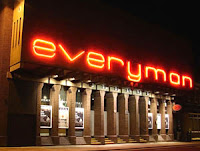
Here are the notes on the next 2 chapters from this book that I found earlier this year and am serialising throughout 2011.
Chapter 8 -Declension
The short era of the slum novel was coming to an end by the 1890's, leaving Zola behind for the 'romance' of Dickens and his depictions of the more 'cheerful' aspects of the poorer classes. At the same time a new class was emerging from the areas quickly becoming the suburbs, spreading out from London's centre and the major industrial centres, as well as coastal resorts now easily accessible by railway. This new 'tribe' of city dwellers was of special interest to the cultural anthropologists, and was also composed of avid novel readers, too leading to a flourishing fictional genre that 'celebrated or gently mocked suburban lifestyles and values', (p129). The characteristic most obvious from such writing was the monotony of suburbia, the elimination of variety, producing a certain type of person that denied differences, or sense of community. We no longer seemed to witness a society united by common human bonds, but one that thrived now on individual capacity and desire. This uniformity could be viewed in 2 ways, the Dickens view of benevolence, or the Ruskin view of pettiness and destruction.
Authors Arnold Bennett and Virginia Woolf took opposing views about characterisation at this time. Woolf embraced the new concepts of identity and their depiction in literature, Bennett felt that she neglected depth of character while trying to be clever in her writing. Woolf rejected the traditional tools and conventions of portrayal, preferring to convey character through 'poetic awareness'. In Modern Fiction, the more aware someone is of their own identity, the more representable they become. Modernism itself has been said to be a 'poetic of awareness' (133).
Bennett on the other hand preferred to use the differences between people as essential to their portrayal. These differences, particularly between gender, were key to Bennett's characters.
Where there is awareness of character, there must also be unawareness. Bennett championed the right to a characters unawareness. This required a new type of plot. Traditional English novel writing had included revelations throughout as a character develops, and prejudice and habits make way for a when the 'naked self confronts a naked world' (p135). Layers of character needed to be stripped away to reveal the truth, the final transformation. Bennett found himself between 2 traditions, so a new plot was formed, to illustrate a personality that does not develop, that is stuck in a kind of inertia and unable to progress. Bennett called this type of personality, one 'not shaped by development or degeneration' (137), as 'declension', and few people in his novels escaped it. 'Declension involves a gradual loss of energy, will, presence, significance.', (p137).
Hysteria during the 19th century was considered to be a serious disablement, mainly in women, due to hormonal attributes that could run genetically through families, as portrayed in Zola's novels regarding members of the same family's degenerational characters. Whereas Zola would portray Nana's degeneration into hysteria, Bennett took the Freudian stance in his novels, of hysteria brought on by a traumatic incident, in the form of declension instead. Sinclair, Joyce, Lawrence and Mansfield all use this basis for their stories of declension.
Chapter 9 - Frontiers
In opposition to realism came romance and during our modern era of writing romance had new territories, that of empire. Anxieties about society and degeneration were explored in naturalist novels, anxieties about the decline of Empire were explored in romance. Imperialism was having to reassert itself amongst so much competition from other countries wanting the same resources. This regeneration was the source of a lot of reproduction in our culture.
Studies on colonization have revealed that far from moving the colonizers identity abroad, as was often the intention, the reality was a new identity formed out of survival in the colonies and adapting to the new conditions. Renewal or regeneration of identity was also seen as a threat, reinforcing the conviction of the West in decline. Colonial experience however, was to provide writers with fascinating new angles and comparisons to use in their work, even for an anti-Imperialist writer like Henry James.
America had already embraced the regeneration of individual and collective identity with its own frontier myths. In 1893 Frederick Jackson Turner read his paper to the American Historical Association, stating that 'American social development has been continually beginning over again on the frontier. This perennial rebirth, this fluidity of American life, this expansion westward with its new opportunities, its continuous touch with the simplicity of primitive society, furnish the forces dominating American character.' (p145). As the Americans have had to readapt to the new conditions of the perpetually moving frontier, so must Europeans adapt to influences as they march across continents with their own frontiers. However, the British novels, unlike the American writing, illustrate the process of renewal, strength out of weakness. This renewal can be emotional as well as political.
Writers were now taking their characters, exhausted and purposeless, who would have descended into degeneration, to new territories where they can find new identities through emotional and political commitment. The only way to complicate this narrative was to mix up the two in one novel, as A.E.W. Mason did in The Four Feathers.
Contemporary works that illustrate the above points include...
Howards End by E M Forster
Clayhanger and Hilda Lessways by Arnold Bennett
Nana by Emile Zola
Kim by Rudyard Kipling
The Half Hearted by John Buchan
The Great Amulet by Maud Diver
The Tragedy of Korosko by Arthur Conan Doyle
The Prisoner of Zenda by Anthony Hope
The Four Feathers by A E W Mason
Look out for the next two chapters from this fascinating book in a post next month.

















































